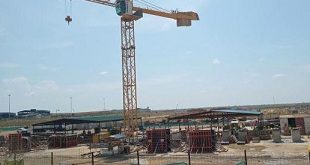New Total, Vivo Energy battle lines set
The acquisition of GAPCO by Total will most likely heat up the competition between the two major international players – Total and Vivo Energy – and will relegate the small players to the peripheries of the industry, which could create more room for acquisitions and mergers.
Stephen Kaboyo, the managing partner at Apha Capital Partners, believes that this particular transaction may not necessarily be due to financial distress or consolidation but opportunity to expand by acquiring assets at a reasonable price.
Kaboyo suggested that it’s tough for small players as competition is tight and the big players continue to widen their market share.
“There is no doubt that the acquisition widens Total’s footprint, which is seen as critical in driving up sales and giving customers more access to their brands,” says Kaboyo.
The Total Group has been in Uganda since 1955 through the marketing and services division for which it is the market leader with over 118 active fuel stations. Total currently operates a network of more than 4,000 fuel stations in Africa and aims to raise its market share in Africa from 17% in 2015 to more than 20%.
Shell, whose brands are now marketed by Vivo Energy, has been present in Uganda since 1953 with the company steadily building up its portfolio over the years and acquiring interests in major local fuel suppliers.
In June 2000, Shell acquired all the assets of Agip comprising 320 retail fueling stations, depots and sales networks in five African countries, namely; Kenya, Uganda, Ethiopia, Eritrea and Ivory Coast. Shell at the time issued a statement indicating that the acquisition represented a significant investment on these key markets.
Today, Vivo Energy has operations in 16 African countries with over 1,600 fuel retailing stations under the Shell brand and has access to approximately 900,000 cubic metres of fuel storage capacity.
In 2011, KenolKobil, which has been in Uganda since 1999 acquired all the assets of Phoenix Petroleum including a 1,800 m3 (1.8 million litres) fuel depot in Jinja, a modem three-storey office block and three fuel retailing stations in Kampala. It is slowly growing its presence in the country and could be opting to acquire other small players.
 The Independent Uganda: You get the Truth we Pay the Price
The Independent Uganda: You get the Truth we Pay the Price



